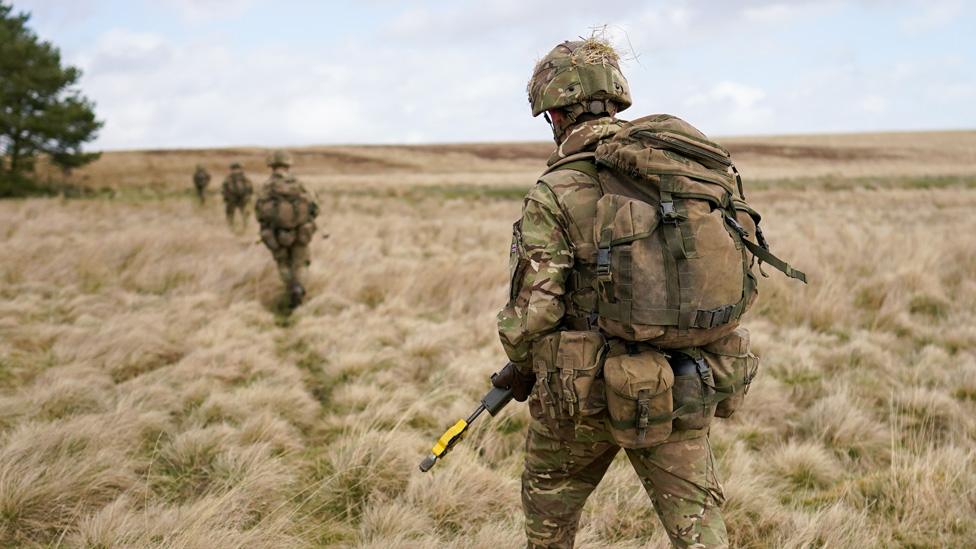Wrong to ban army personnel from giving evidence to housing inquiry - Tory MP
- Published

A Conservative MP has criticised defence secretary Grant Shapps for preventing members of the armed forces from giving evidence to an inquiry into accommodation standards.
Inquiry chair Robert Courts said the decision was "extremely disappointing".
It follows a ┤¾¤¾┤½├¢ investigation revealing that military personnel and their families are living in damp, mould-infested housing without heating.
The government said the decision was made by the previous defence secretary.
Serving personnel already have routes to give feedback or raise issues regarding service accommodation, according to the government.
The MOD have also a new accommodation offer to Armed Forces personnel which will be available from March 2024.
The Commons defence sub-committee is investigating what the Ministry of Defence's plans are to improve services, as well as modernise and invest in single living and service families' accommodation.
The Ministry of Defence has previously said it was unacceptable that some military families were not receiving the level of service they deserved.
Mr Courts, who chairs the service accommodation, sub-committee, said: "It is extremely disappointing that the Secretary of State has decided not to allow serving personnel to contribute to our inquiry into Service accommodation.
"It is fundamentally wrong that members of our Armed Forces are being prevented from contributing to our inquiry.
"Service accommodation is a personal experience that personnel should be allowed to share with the Committee. Stifling those voices hinders thorough parliamentary scrutiny."
He added that it is "concerning" that the Ministry of Defence has cited the ways in which personnel can already raise issues with their accommodation as a reason to stop them from contributing to the inquiry.
A woman living in armed forces housing said she had mould in every room
"As the MOD knows, this inquiry is focused on their accommodation policies and the committee will not take up individual cases.
"It appears that the MOD has misunderstood the defence committee's role in Parliament and the purpose of this inquiry."
However, despite Mr Shapps' decision, Mr Courts said that they have received several submissions from serving personnel and "may receive more".
Mr Courts said that submissions from serving personnel can be expected to be treated confidentially. Although they cannot be referenced in the eventual report, Mr Courts said their "input will be valuable in informing our work."
The sub-committee had requested that the MOD to provide special dispensation to allow service personnel to contribute to this inquiry.
All contact between members of the armed forces and Parliamentarians must be authorised in advance through ministers. However this doesn't apply to members of the armed forces or MOD civilians contacting their constituency MP on a personal matter.
The MOD rules are that all contact with the media or communication in public by members of the armed forces and MOD civilians in relation to defence or government business must be authorised in advance.
The MOD has said that unauthorised disclosure or leaking of information may cause damage to the Department and the armed forces.